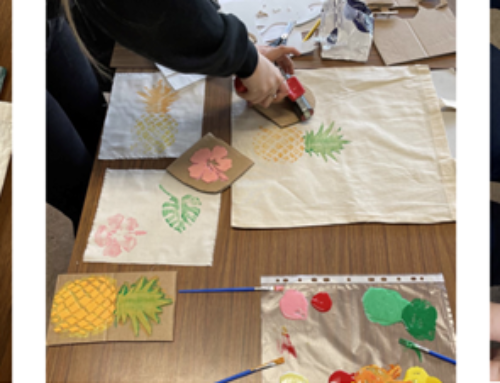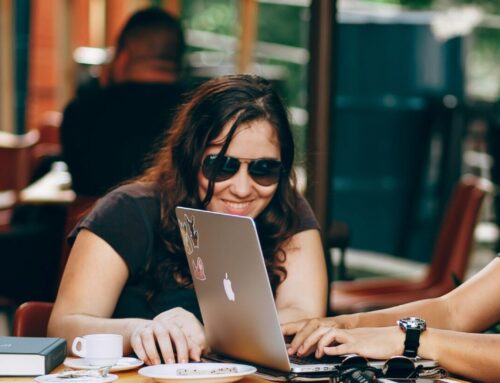In this final blog in the series reflecting on previous enhancement themes projects, Anna Sedda and Cakil Agnew, Associate Professors in the School of Social Sciences, shares their insights on working in global teaching teams.
At Heriot-Watt, we deliver our teaching in Global Teaching teams: groups of academics, in our different campuses, develop and deliver state of the art knowledge to our students. If Global Teaching teams work in harmony, the student experience is enhanced and enriched. But: how are Global Teaching Teams formed? And what kind of measures do we put in place to support them? What makes the difference in engaging with a team is how much we feel welcomed by it. Feeling part of a group that shares the same values, aims and that supports team members to overcome barriers and obstacles, and finds opportunities to grow is also essential. Though, what does ‘welcome’ feel like? How do we know what ‘welcome’ feels if we do not speak to people about it? Have we ever asked our Global Teaching teams what they do to ensure new members are feeling welcomed?
These are the questions that Dr Anna Sedda and Dr Cakil Agnew (SoSS), together with our former colleague Dr Zuhrah Beevi and some student research assistants, explored in the WELCOME project.
What did we do?
This project, we focused on specific aspects from Psychology that can help us understand Global Teaching teams, specifically: wellbeing, engagement, learning, collaboration, opportunities, mind-set and education. Not by chance, if you take the first letters from each of these words…you get WELCOME!
Initially adopting a qualitative approach, we identified themes from the domains above, developed appropriate questions and then conducted focus groups with colleagues from SoSS (all the 3 campuses, and all the various disciplines) to gather insights from their answers. Instead of aiming at entirely removing bias from this project, we adopted a more reflective approach: we (Anna, Zuharah and Cakil) have been working together in a global teaching team in the past, as such we did not have an external perspective, rather we are colleagues with a lived experience. This element was well known to the participants in the study. A total of five semi-structured focus groups with 21 participants were conducted between April – June 2022. The inclusion criteria for the focus groups were i) being an active teacher at the university and ii) being in the current role in the last two years.
Three Psychology students, from Edinburgh, Dubai and Malaysia, were recruited for this project, to help us with the literature review that formed the basis of our work and to develop the questions for the focus groups.
Why did we do it?
Heriot-Watt is a global University, by choice. The basic foundation of our strategy is to be a globally connected University, build flourishing communities and be pioneering in education. At the core of this strategy is the work of our Global Teaching teams. However, ‘teams’ is an abstract word to indicate a group of people, in the first instance. People might have all the resources on processes, and still not work well together. We conducted this project as we want to better understand our work context and help colleagues who are already here, as well as colleagues who will join in the future, to make the most of the amazing opportunity to work in a global team.
What was the impact of our project?
When we initiated WELCOME, we did not expect the widespread impact the project had. As this was a research project, we had the opportunity to share the findings at various conferences, including the Improving University Teaching conference in Malaysia in 2023, the UK Culture and Psychology Conference 2023 in Edinburgh and the 2024 Psychology conference hosted by University of . We are now writing up the findings of the project so that it can be shared for publication. But the project had also unexpected impact in that it created opportunities for everyone involved. For example, one of the students who worked on the project went on to work as a research assistant in the UAE.
Anna and Cakil developed workshops to help global teams work together. This means that thanks to the project we have been able to build scenarios that are common when working across the globe in highly diverse teams, and we can help other institutions and governments make sense of behaviours and perspectives, and reflect on their own perceptions. The success of the first workshops meant that participants brought the idea to their own institutions, and we are now following up with them.
WELCOME also led to the next step, WELCOME BACK, which involves a more quantitative examination of the global teaching team psychological components, including colleagues from across all schools in the University. Using a survey whose questions are developed based on people’s responses to the qualitative phase of the project, we want to capture a richer perspective, that is not bound to a specific subset of disciplines and that will allow further consolidation of what global teams need and where we can identify good practices.
How could others benefit from this example or approach?
Resilient teams are not perfect teams, whether you look at them in teaching settings or elsewhere. They face mistakes, stress and moments of exhaustion. However, a resilient team knows this is a moment, and they bounce back. Mostly, they can overcome adversity through supporting each other, sharing the load and by ensuring that everyone’s skills and diverse experiences contributes to the conversation. The problem is that the fast pace of the world businesses, including Higher Education settings, and the lack of resources to turn to, do not always allow teams to stop and reflect on what is not working, so they can improve their experience. As such, our project benefits others as it is an example of promoting space for reflection to enable individuals to flourish thanks to working together. Our project success in terms of being welcomed by not only the academic community, but also other types of companies, demonstrates two things: firstly, that working in a team is the only way to understand complex problems involving human beings, and secondly that allowing space for reflection is indeed of interest despite the fast paced world we live in.
Image credit: Photo by Sixteen Miles Out on Unsplash






